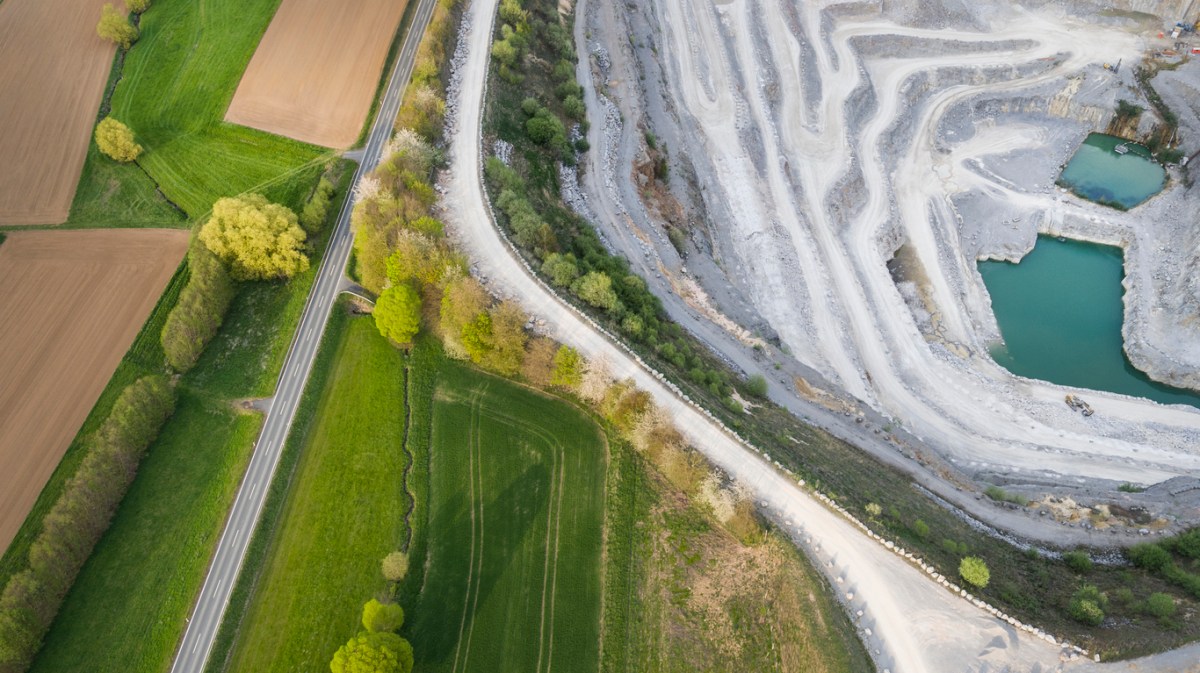The team have brought together their skills in geology, biology and chemistry to identify a process where waste rock from mine sites can actually absorbs carbon when crushed and laid onto the soil. Plus, it’s fertilises the soil!
OnImpact spoke with co-founder and CEO, Andrew Pedley.
What does your business do, and who are your customers?
Carbonaught aims to remove carbon from the atmosphere and increase food security.
We recycle waste rock from mining and quarry operations by crushing and then spreading it on farmland as an organic fertiliser. Using a proprietary enhanced weathering measuring process we can track the removal of CO2 from the atmosphere, while also restoring degraded agricultural soils and increasing food security.
The company was an XPrize Carbon Removal Challenge Finalist (ranking #24) in 2022.
What’s the core problem you’re trying to solve?
Climate change and food security are interlinked challenges. 345 million people are facing acute food insecurity in 82 countries around the world. Due to climate change, extreme weather events are expected to become more frequent and severe which will only contribute further to this food crisis through their effect on degraded agricultural soils.
What’s your impact thesis?
Carbonaught’s mission is to underpin 150 million hectares of restored agricultural land, 1 Gigaton of permanently removed greenhouse gases per annum, nutrition security and income improvement to 80 million people, by 2030.
How have you seen investor interest in the climate-tech space develop in the past 5 years
My first exposure to interest in this space was from inside a resources company and watching the cost of debt and/or insurance start to balloon out or be removed from the table altogether. That gave a decent sense of the scale of the problem financially. Looking back, it was a matter of time before that number attracted the attention of companies backed by their investors.
In terms of our experience, there were three things I felt prompted the explosion of interest in climate-tech. Larry Fink’s (Blackrock) Jan 21 Letter to CEOs, Elon Musk’s $100m Xprize Carbon Removal Competition, and Stripe Climate’s (now Frontier Climate) first USD $50m fund.
From those three events we received the message that:
- Dear Company X, you aren’t getting capital unless it’s environmentally responsible (Fink),
- If you can solve this problem there’s proper money waiting to support you (XPrize), and
- You didn’t need to play by the Government’s outdated rules to achieve that aim (Stripe).
Those green lights have now seen some amazing technologies see the light of day across land, sea and air.
What support (from Government or other stakeholders) would help accelerate growth in the climate-tech space?
On the whole, my default position is to cut the Government some slack on ‘climate-tech’ acceleration, though I think stepping away from Australia’s so-called ‘carbon-market’ would be worthwhile.
This isn’t my idea but potentially allowing the super funds to deploy capital into the space could speed things up by allowing a well-structured, cohesive body to deploy capital in an environment where there are material consequences if things go well or poorly. I think the risk of state/federal funding is its tendency to create bureaucrats rather than sharp allocators of capital.
Ultimately, I believe that the traditional heavy hitting industries of energy, metals & mining and agriculture will be forced to accelerate our ability to reduce emissions. Finding ways to support that rather than demonising them might be a start for the wider Impact community.
Was there a business (either local or globally) that influenced the development of your organisation?
Yes, there are several companies that I feel provide valuable lessons when we’re reviewing strategic choices. I’m continually discovering gems in how the Levant Company conducted itself in foreign lands. It turns out, goodwill, tolerance, integrity and adapting to other world views and systems of government were crucial. These traits will be key to how we deal with our clients, investors and team as we start to scale.
I also liked the story of Google in the early days, namely their rejection of the prevailing ‘search is dead’ narrative, sticking to their guns and bringing in professionals at the right time and for the right reasons to deliver something that changed how the world worked.
What’s in store for your business in 2023?
Australian expansion and really going deep on one or two key value chains and pulling together the elements into something that lives and breathes. This will be vital in setting us up for international expansion in the back half of the year.
We’ve also got some hardware development that we’ll be putting into field trials in Q1 which could be a pretty significant story in and of itself.
Finally, we’ll be hiring a number of roles across R&D, field operations and software development so if you or your readers know people we should be talking to, let me know.

